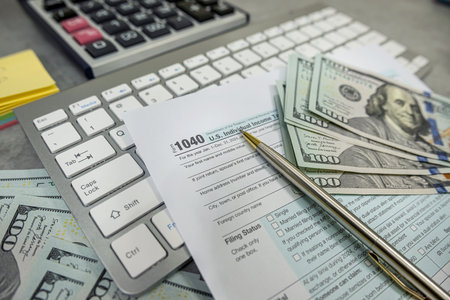Understanding UK Laws and Regulations
If youre thinking about renting out a spare room in your home, the first thing you need to do is get familiar with the legal side of things. In the UK, there are clear rules for homeowners who want to let out a room, and its really important to understand these before you start advertising or welcoming a lodger. First off, youll need to know what it actually means to become a “live-in landlord”—this comes with specific responsibilities under UK law. From safety standards and deposit protection schemes to your obligations around repairs and maintenance, theres quite a bit to take on board. You should also be aware of the Rent a Room Scheme, which can offer tax-free earnings up to a certain limit if youre letting out furnished accommodation in your main home. On top of that, housing regulations like fire safety requirements and right-to-rent checks (to confirm your lodger has the legal right to live in the UK) are non-negotiable. The bottom line? Before you let out your spare room, make sure youve ticked off all the essential legal boxes. This will help you avoid any nasty surprises and ensure both you and your future lodger have a smooth experience from day one.
2. Checking Your Mortgage, Lease, and Insurance
Before you start advertising your spare room on websites or putting up a notice in the local shop, it’s absolutely essential to make sure you’re not breaching any agreements with your mortgage lender, landlord (if you’re renting), or insurance provider. Here’s why each of these steps matters – and how to tick them off the list like a pro.
Why You Need to Inform Your Mortgage Lender
If you have a mortgage on your home, most lenders require you to let them know if you’re planning to rent out a room. This is because it could affect your mortgage terms or even breach your contract if you don’t get permission first. Some lenders are quite relaxed about lodgers, while others may charge a small fee or adjust your interest rate. It’s always best to double-check so you don’t accidentally break any rules.
Don’t Forget to Check Your Lease (If You’re Renting)
If you’re renting your home rather than owning it, your tenancy agreement will almost certainly have a clause about subletting or taking in lodgers. Sometimes landlords are happy for you to rent out a room as long as you ask first; other times, it might be strictly forbidden. Ignoring this could land you in hot water, so always read the fine print and speak to your landlord before making any plans.
Quick Reference Table: Who To Inform When Renting Out a Room
| Situation | Who to Inform | Possible Outcome |
|---|---|---|
| Homeowner with mortgage | Mortgage lender | May need consent or pay a fee |
| Tenant (renter) | Landlord/letting agent | Might need written permission or may not be allowed |
| Anyone with home insurance | Insurance provider | Policy updates required; may affect premium |
Updating Your Home Insurance
Your standard home insurance policy probably doesn’t cover having paying guests or lodgers. Letting your insurer know is crucial – otherwise, if something goes wrong (like accidental damage or theft), you could find yourself uncovered. Most insurers will just update your policy details; some may increase your premium slightly. Either way, full disclosure keeps everything above board.
How to Go About It the Right Way:
- Contact your mortgage lender and ask about their policy on renting out a room.
- If renting, check your tenancy agreement and get written permission from your landlord if needed.
- Call your home insurance provider and explain that you’ll have a lodger.
- Keep records of all permissions and correspondence in case questions arise later.
Taking these steps early saves headaches down the line and means you can welcome your new lodger with peace of mind, knowing everything is legal and above board!

3. Safety First: Meeting Legal Safety Requirements
If you’re thinking about renting out a room in your UK home, it’s not just about finding the right lodger – it’s also about keeping everyone safe and following the law. The UK has some pretty clear rules when it comes to safety checks and certificates for landlords (even if you’re just letting out one room). Here’s what you need to know before welcoming someone new into your space.
Smoke Alarms and Carbon Monoxide Detectors
First things first, smoke alarms are a must. By law, you’ll need to have at least one smoke alarm installed on every storey of your home where someone is living. And if you’ve got a solid fuel burning appliance (like a wood-burning stove or open fire), you’ll also need a carbon monoxide detector in that room. Remember, these aren’t just tick-boxes – they could save lives, so make sure they’re working and test them regularly!
Gas Safety Certificate
If your home has any gas appliances (think boilers, cookers, or fires), you’ll need to arrange an annual gas safety check with a Gas Safe registered engineer. After the check, you’ll get a Gas Safety Certificate (sometimes called a CP12). You’ll need to give your lodger a copy of this certificate within 28 days of the check – it’s the law, and it gives everyone peace of mind.
Electrical Safety
While it’s not always legally required for live-in landlords renting out a single room, it’s highly recommended to get your electrics checked by a qualified electrician. If you’re letting out more than one room or running a larger house share (an HMO), then an Electrical Installation Condition Report (EICR) is mandatory every five years. Even if it’s not required for your situation, safe electrics are always a good idea!
Fire Safety Precautions
You don’t have to provide fire extinguishers or blankets by law unless your property is classed as an HMO, but providing basic fire safety equipment is still smart. Make sure escape routes are clear and doors open easily from the inside – you want everyone to get out quickly if there’s ever an emergency.
Keep Records and Stay Up to Date
Finally, always keep records of all your safety checks and certificates. Laws can change, so check the government website or speak to your local council if you’re unsure about anything new. Staying on top of safety requirements isn’t just about ticking legal boxes – it shows you care about your lodger and keeps everyone sleeping soundly at night.
4. Setting the Right Rent and Deposits
Getting the price right is a biggie when renting out a room in your UK home. You want to be fair, attract good tenants, and make sure you’re following all the rules. Here’s how to get started:
Tips for Deciding Fair Rent
- Check Local Listings: Browse sites like SpareRoom or Rightmove to see what similar rooms are going for in your area.
- Consider What’s Included: Are bills, council tax, or internet included? Factor these into your rent price.
- Location Matters: Proximity to stations, universities, or town centres can nudge the price up a bit.
- Condition of the Room: Freshly decorated spaces or ensuite bathrooms can often justify a higher rent.
| Room Feature | Potential Rent Impact |
|---|---|
| Bills included | Slightly higher rent |
| Ensuite bathroom | Higher rent |
| Shared bathroom/kitchen | Standard rate |
| Furnished room | A bit more than unfurnished |
Understanding Deposit Rules in the UK
You’re allowed to ask for a security deposit—this protects you if there’s damage or unpaid rent. But, there are strict rules:
- Maximum Deposit: In England, it’s usually capped at five weeks’ rent (if annual rent is under £50,000).
- No ‘Cleaning Fees’ Deducted Upfront: Any deductions have to be justified at the end of tenancy.
- Give a Written Receipt: Always confirm how much deposit you’ve received and where it’s protected.
Government-Backed Tenancy Deposit Schemes (TDPs)
If you’re renting out a room on an assured shorthold tenancy (AST), you must protect your tenant’s deposit in a government-backed scheme within 30 days. This keeps things fair and legal for everyone.
| TDP Scheme Name | Main Features | Website |
|---|---|---|
| The DPS (Deposit Protection Service) | Free custodial scheme; online management; quick dispute resolution. | depositprotection.com |
| TDS (Tenancy Deposit Scheme) | Custodial & insured options; impartial adjudication; easy online access. | tenancydepositscheme.com |
| MyDeposits | Custodial & insured protection; simple registration process. | mydeposits.co.uk |
Peace of Mind Tip:
If you don’t protect the deposit correctly, you could face fines and trouble evicting a tenant later on—so always use an official scheme!
5. Creating a Lodger Agreement
When you’re renting out a room in your home, having a written lodger agreement isn’t just a formality—it’s a real lifesaver if things ever go pear-shaped. In the UK, a proper agreement helps set out everyone’s rights and responsibilities, making it much easier to avoid awkward misunderstandings further down the line.
Why a Written Agreement Matters
While it might be tempting to just have a friendly chat and shake on it, putting everything in writing protects both you and your lodger. If there’s ever a dispute (say, about notice periods or bills), your agreement will be your best mate. It also makes it clear what’s expected—so no one can claim they “didn’t know” about house rules or rent deadlines.
What Should Be Included?
- Rent Details: How much, when it’s due, and how to pay.
- Deposit: If you’re taking one, specify how much and what conditions apply for returning it.
- Notice Periods: How much notice you or your lodger need to give to end the arrangement.
- House Rules: Things like smoking policy, guests, cleaning duties, and use of shared spaces.
- What’s Included: List any bills (council tax, utilities) or services (Wi-Fi, cleaning) covered by the rent.
Where to Find UK-Specific Templates
If you’re not sure where to start, don’t worry! There are loads of free or low-cost lodger agreement templates tailored for the UK. Trusted sites like Citizens Advice, GOV.UK, and Shelter offer templates that cover all the legal bits you need. Just make sure any template you use is up-to-date with current UK laws—this saves hassle later on!
Top Tip:
Always give your lodger a copy of the signed agreement—and keep one for yourself. It keeps things crystal clear from day one!
6. Tax and the Rent a Room Scheme
If you’re planning to rent out a room in your UK home, understanding how tax works is super important—nobody wants a surprise letter from HMRC! Luckily, there’s something called the Rent a Room Scheme that could make things a lot simpler (and cheaper) for you.
What is the Rent a Room Scheme?
The Rent a Room Scheme is a government initiative designed to encourage homeowners (or even tenants with permission) to let out furnished rooms. Under this scheme, you can earn up to £7,500 per year tax-free from letting out furnished accommodation in your main home. If you share the income with someone else (like your partner), each of you can claim half of the allowance.
How Does It Work?
It’s quite straightforward. As long as you’re renting out a furnished room in your main residence, you automatically qualify for the scheme—you don’t even need to do anything unless your earnings go over the threshold. Just remember, it doesn’t apply if your property is converted into separate flats, or if you’re letting through Airbnb on a short-term basis.
What If You Earn More Than £7,500?
If your rental income exceeds the £7,500 threshold in any tax year, don’t panic! You have two options: either pay tax on all your profits after deducting allowable expenses (like repairs or agent fees), or simply pay tax on your total income minus the £7,500 allowance. Usually, HMRC will ask you to fill out a Self Assessment tax return if this happens.
Do You Need to Tell HMRC?
If you stay under the £7,500 limit, there’s usually no need to contact HMRC—nice and easy! But if you go over, you must declare your earnings. It’s always best to keep records of what you receive and any expenses just in case you need them later.
Handy Tips for Staying Organised
Keep copies of rental agreements, receipts for repairs or cleaning costs, and any correspondence with your lodger. That way, if HMRC ever asks questions, you’ll have everything ready to go.
In Summary
The Rent a Room Scheme is brilliant for making some extra cash without worrying about tax—just make sure you know when to flag it up with HMRC! For most people renting out just one room, it keeps things simple and hassle-free.
7. Welcoming Your Lodger: Next Steps
Handy Tips for Advertising Your Room
Once you’ve sorted the legal bits, it’s time to let the world know you have a room available! Popular UK sites like SpareRoom, Gumtree, and even local Facebook groups are great places to start. When writing your ad, be honest and clear—mention things like rent amount, what’s included (bills, Wi-Fi, council tax), and a bit about the household vibe. Good photos help your listing stand out, so tidy up before snapping pics. If you’re after a specific type of lodger (e.g., professional or student), say so in a friendly way.
Vetting Potential Lodgers
Don’t rush this bit—it’s worth taking your time! Arrange viewings so both you and the potential lodger can get a feel for each other. Ask questions about their routine and expectations, and be prepared to answer theirs too. Always check references from previous landlords or employers; it’s standard practice in the UK and helps give peace of mind. Remember to carry out Right to Rent checks as required by law—you’ll need to see original ID documents.
Tips for a Smooth Move-In Day
- Have a written agreement ready for both parties to sign—this avoids confusion later on.
- Prepare an inventory of furniture and condition of the room, ideally with photos.
- Give your lodger practical info: bin collection days, Wi-Fi password, heating controls, etc.
- Be welcoming! Offer a cuppa and show them around—first impressions count.
Final Thoughts
Welcoming someone new into your home is a big step but can be rewarding when done right. Take care with advertising, vetting, and move-in prep, and you’ll set the stage for a positive experience—for both you and your new lodger!


